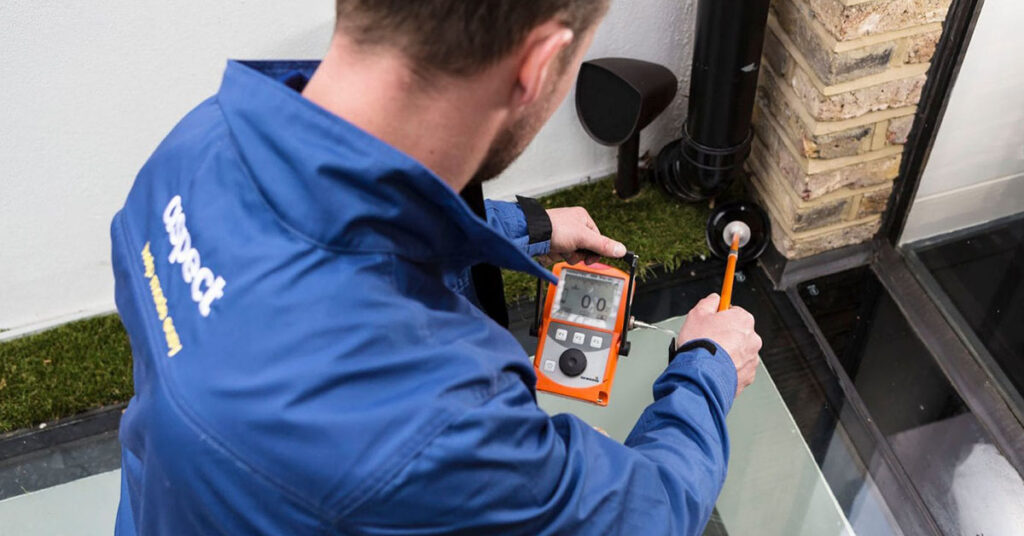Water leaks can be a homeowner’s worst nightmare, causing extensive damage and leading to costly repairs if not detected early. The question many homeowners ask is: Can a plumber detect a water leak? The answer is a resounding yes. Professional plumbers are equipped with the skills and tools necessary to locate and fix water leaks efficiently. In this blog post, we’ll explore the methods plumbers use to detect water leaks, why early detection is crucial, and how you can recognize the signs of a leak in your home.
Why Early Detection of Water Leaks is Crucial
Detecting water leaks early can save you from significant damage and high repair costs. Here are some reasons why early detection is so important:
- Prevent Structural Damage: Water leaks can weaken the structure of your home. Prolonged exposure to water can damage walls, ceilings, and floors.
- Avoid Mold Growth: Moist environments are perfect breeding grounds for mold and mildew, which can cause health issues for you and your family.
- Save on Water Bills: Unnoticed leaks can lead to skyrocketing water bills. Early detection helps you save money.
- Preserve Your Belongings: Water can damage furniture, electronics, and personal belongings. Quick action can prevent these losses.
Can a Plumber Detect a Water Leak?
Yes, a plumber can detect a water leak using a combination of experience, specialized tools, and modern technology. Detecting a water leak is a critical part of a plumber’s job, and they are trained to identify leaks that might not be immediately obvious to homeowners. Here’s how plumbers typically detect water leaks:
Visual Inspection
One of the first steps a plumber takes is a thorough visual inspection of your home. They look for common signs of leaks such as:
- Stains on Walls and Ceilings: Discoloration or stains can indicate water damage from leaks.
- Wet Spots and Puddles: Visible wet areas on floors or walls are clear indicators of a leak.
- Mold and Mildew: The presence of mold or mildew often points to a hidden leak.
- Musty Odors: Damp, musty smells suggest moisture buildup from a potential leak.
Water Meter Check
A simple yet effective method involves checking the water meter:
- Turn Off All Water Fixtures: Ensure no water is being used in the house.
- Monitor the Meter: Note the initial reading of the water meter. After a couple of hours, if the reading has changed without any water usage, it indicates a leak.
Pressure Testing
Plumbers use pressure testing to identify leaks within the plumbing system:
- Isolating the System: The plumber shuts off the main water valve and attaches a pressure gauge.
- Observing Pressure Levels: A drop in pressure signals a leak somewhere in the system.
Acoustic Listening Devices
Advanced listening devices help plumbers detect the sound of water leaks:
- Using Specialized Microphones: These microphones pick up the sound of water escaping from pipes.
- Pinpointing the Leak: By listening carefully, plumbers can locate the precise area of the leak.
Infrared Cameras
Infrared technology is used to detect temperature variations caused by water leaks:
- Scanning with Infrared Cameras: Plumbers scan walls and floors to find cold spots indicative of moisture.
- Identifying Leak Locations: The thermal images help pinpoint where the leak is occurring.
Dye Testing
For specific fixtures like toilets, dye testing is a straightforward method:
- Adding Dye to the Tank: Plumbers add a dye to the toilet tank.
- Checking for Leaks: If the dye shows up in the toilet bowl without flushing, it indicates a leak.
Signs You Might Have a Water Leak
While professional plumbers are adept at detecting leaks, as a homeowner, you should also be aware of the common signs of water leaks:
- Unexplained Increase in Water Bills: A sudden spike in your water bill can indicate a hidden leak.
- Low Water Pressure: This can be a sign of a leak somewhere in your plumbing system.
- Damp or Wet Spots: Check for wet spots on floors, walls, and ceilings.
- Sounds of Running Water: If you hear water running when all fixtures are off, there might be a leak.
- Cracks in the Foundation: Leaks can cause the foundation to crack due to water seeping into the soil.
Read More: What Are the Black Streaks On My Roof?
Conclusion
So, can a plumber detect a water leak? Absolutely. With their specialized tools and expertise, plumbers can efficiently locate and repair leaks, saving you from potential damage and high costs. Early detection is key, so be vigilant and contact a professional at the first sign of trouble. By addressing leaks promptly, you protect your home, health, and wallet.


